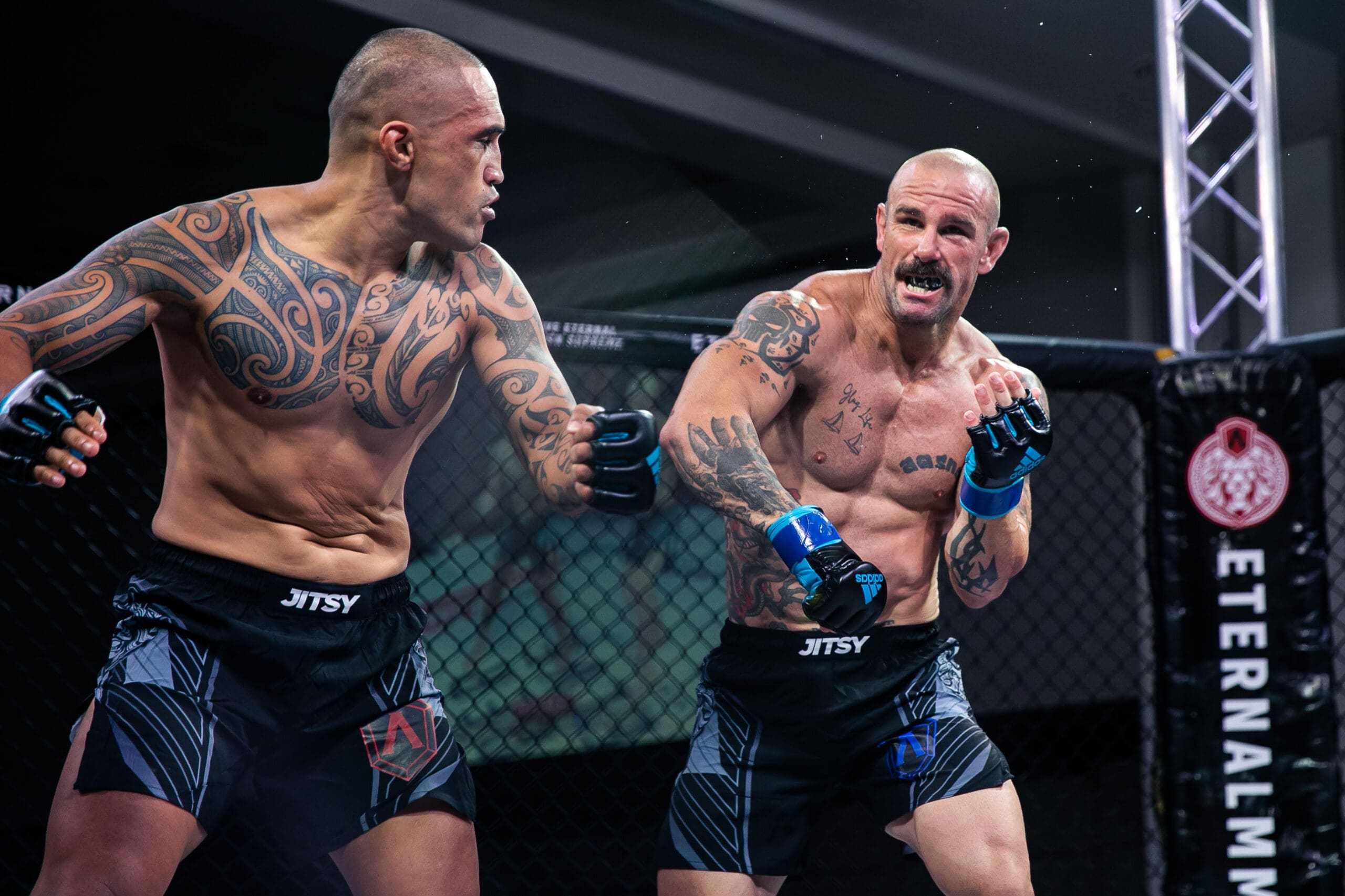An ANZAC Day Feature on Resilience, Community, and Combat Sports
For many who have served in Australia’s Armed Forces, the end of military life marks the beginning of a much quieter—and often more difficult—battle. The transition back to civilian life can feel disorienting, lonely, and overwhelming. Veterans MMA, a community-led initiative founded by former servicemen Ash Pendergast and James Osbourne, is proving that sometimes the best way forward is through the familiar intensity of combat sports.
Veterans MMA is a combat-based program on the Sunshine Coast, Queensland, Australia, offering free weekly training in disciplines like Boxing, Muaythai, Brazilian Jiu-Jitsu, and Freestyle Wrestling. But beyond the punches and rolls, it’s about something much deeper: rebuilding identity, reconnecting with purpose, and restoring a sense of belonging.
A Different Kind of Recovery
While clinical and mindfulness-based treatments can be effective for some, the one-size-fits-all approach often leaves others behind—particularly veterans who thrive on challenge, structure, and adrenaline. Veterans MMA offers a powerful alternative: a space where mental and physical strength are forged together, in the company of those who understand.
“When I was discharged, I found it difficult to transition back into mainstream society; I was desensitised to it, isolated, and alone.”
This sentiment is echoed by many. The loss of camaraderie, the lack of a mission, and the alienation from civilian life can feel impossible to overcome. That’s why Veterans MMA was created not as a therapy session, but as a sanctuary—a place where veterans can train, connect, and feel understood without judgment or formality.
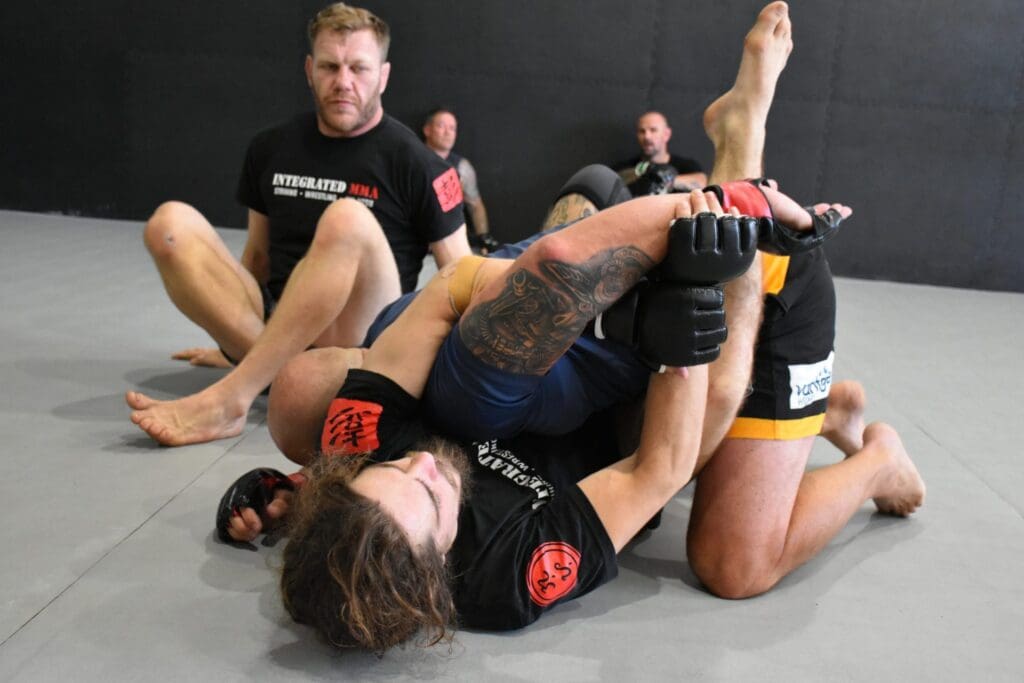
Whether it’s a full-contact sparring session or simply sitting on the mats sharing a coffee, everyone is welcome. Some are chasing fitness goals. Others just need to feel connected again. And for all, it’s about finding a new kind of strength—on their own terms.
From Fighter to Facilitator: Ash’s Story
Ash Pendergast, a combat veteran and co-founder of Veterans MMA, knows firsthand how transformative the program can be—because he lived it.
“After service, I felt like a shadow of the man I once was,” he recalls. “A veteran mate dragged me to a martial arts class, and after one session, I felt so good I had to come back. Six months later, I was a new person.”
That journey culminated in a final fight at Eternal 74—where Ash faced fellow veteran Cole Smith. For Ash, it was a chance to go out on his terms, sharing the cage with someone who understood the experience both inside and outside of combat.
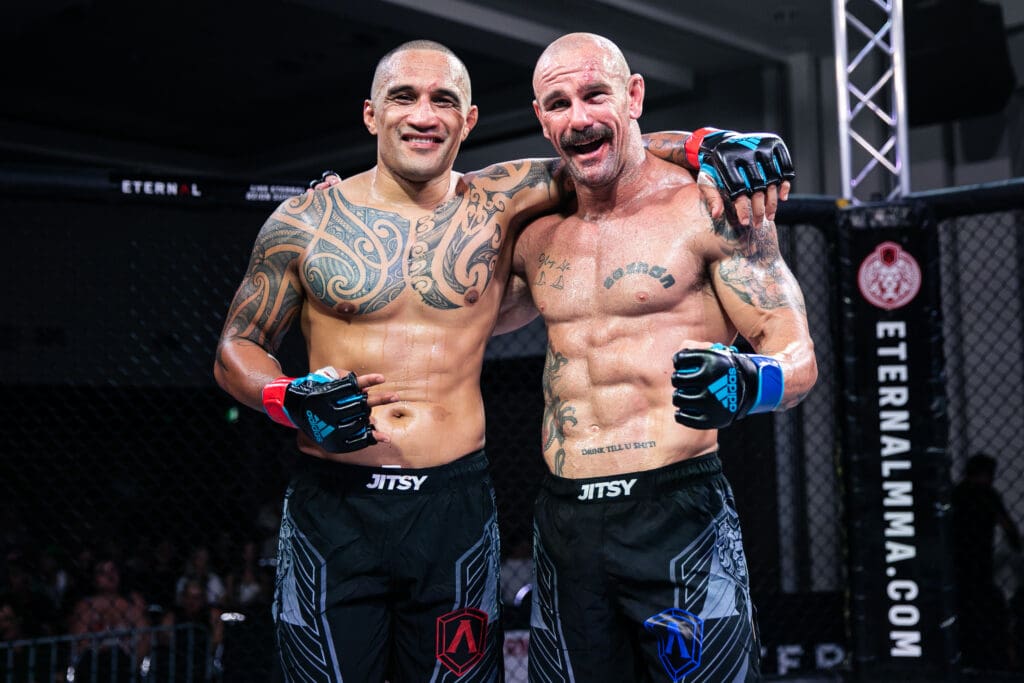
“I gave everything to that camp to go out with a bang,” he says. “To fight another veteran, toe-to-toe, for a cause like this—it was a dream way to retire. Eternal was the perfect place to hang up my gloves.”
The impact on his fellow veterans was immediate. More participants began setting goals—some eyeing amateur fights, others simply engaging more in training and social connection.
“Even those who don’t want to compete get fired up when one of us is in camp. It tightens the bond across the whole community.”
A Fellow Warrior in the Cage: Cole Smith
Ash’s opponent that night, Cole Te Tuhi Puru Smith, is a fellow veteran and owner of Heartbreak Conditioning on the Gold Coast. Cole served with the 2/1 Battalion, Royal New Zealand Infantry from 1999 to 2003. His return to competition wasn’t just about sport—it was a personal triumph.
After suffering two life-threatening strokes, undergoing heart surgery, and being told by doctors he would never compete again, Cole defied the odds just by stepping into the cage. The mental and physical hurdles were immense, and yet, for Cole, fighting MMA again “meant everything.”
Facing Ash made the moment even more significant.
“It felt fitting to return against another infantryman,” Cole said. “Ash was a strong, resilient, experienced fighter—a soldier through and through—and a solid human. It was a war, and I’m proud to have shared that moment with him.”
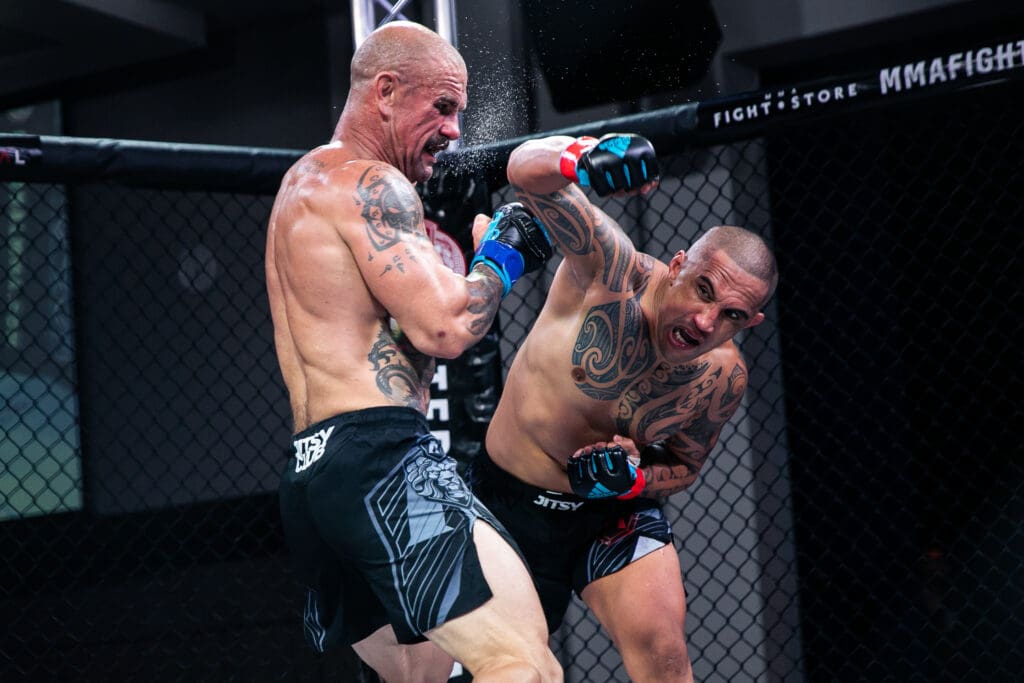
Cole also praised the Veterans MMA program, calling it “an amazing initiative” that brings purpose, mental balance, and camaraderie back into the lives of those who’ve served.
“It takes a good heart to do something like that for our veterans. Martial arts gives you a way to direct your energy positively—and that’s something we all need post-military.”
Regardless of the result, two veterans went to war—and had the entire crowd on their feet, cheering them on for the battle it truly was.
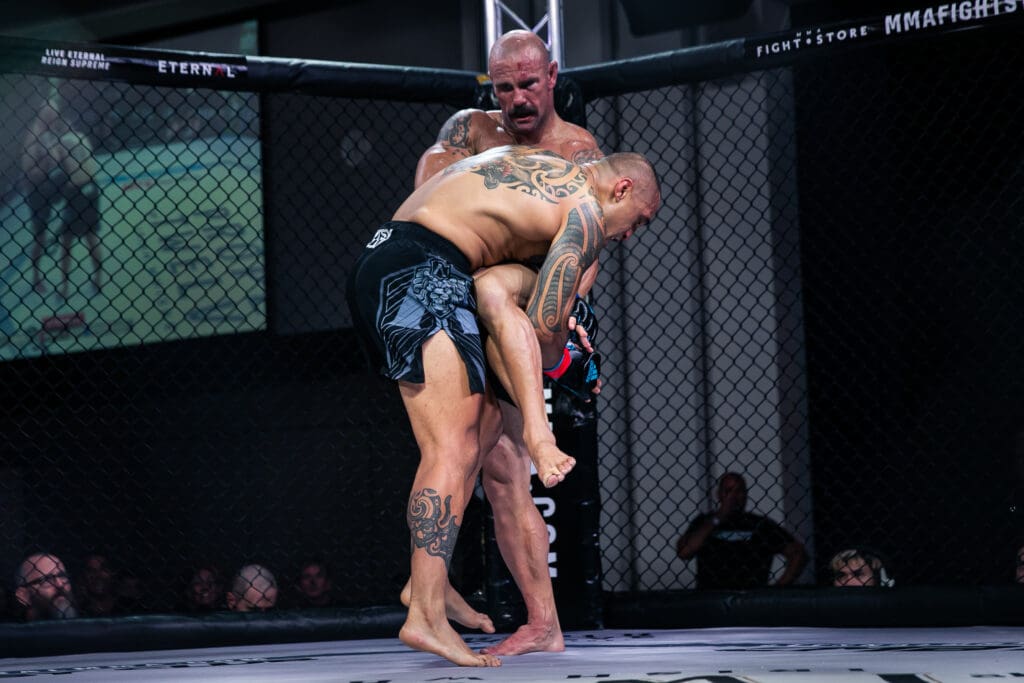
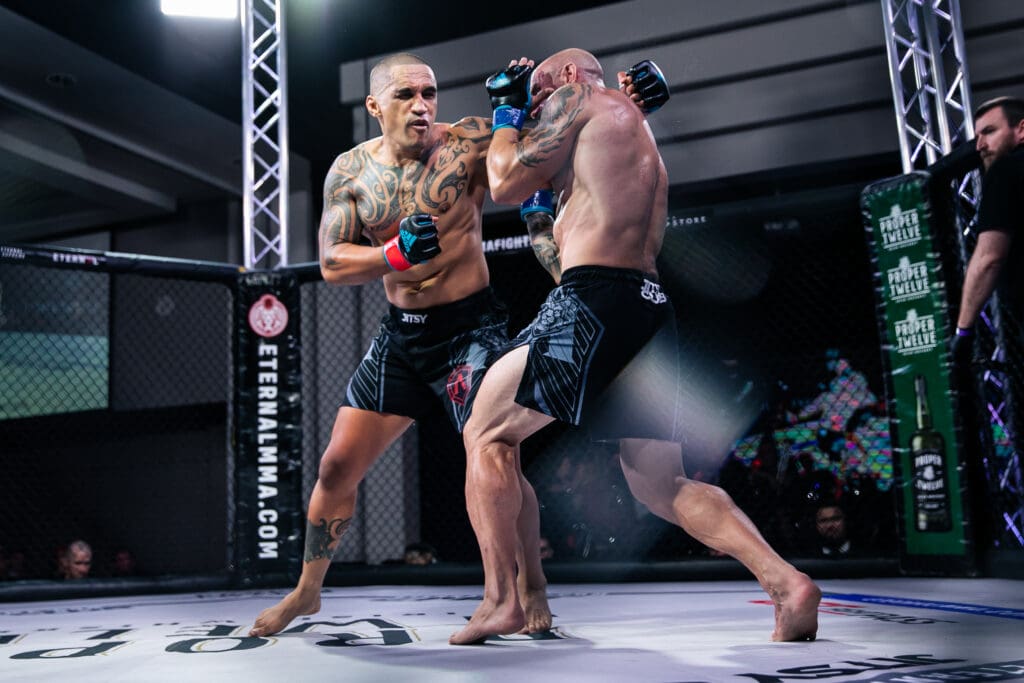
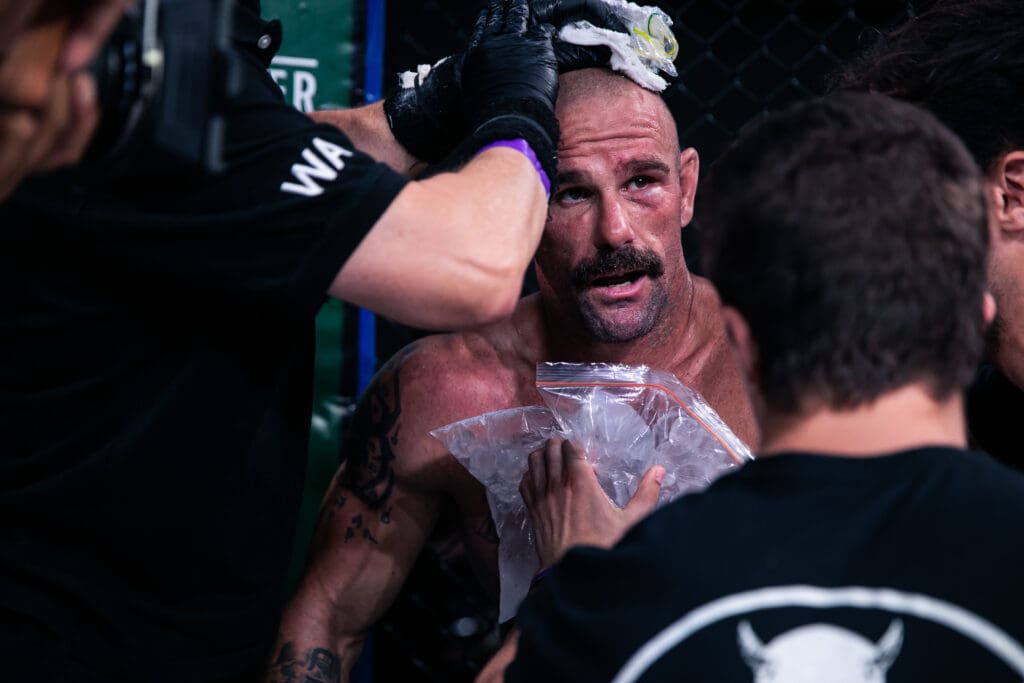
Coaching With Purpose: Jordan’s Perspective
For coach and athlete Jordan Southern, Veterans MMA has transformed not only the people he works with, but his own reasons for stepping into the cage.
“Preparing for fights while being a coach is awesome—the guys really rally behind me,” Jordan says. “That pressure? I welcome it. It motivates me.”
Each fight camp becomes a team effort. Veterans lend support, energy, and encouragement—eager to help however they can. And the effect is mutual.
“Winning always feels good for half a day,” he jokes, “then it’s back to reality. But I’m lucky that reality is coaching and training—so I’m always winning.”
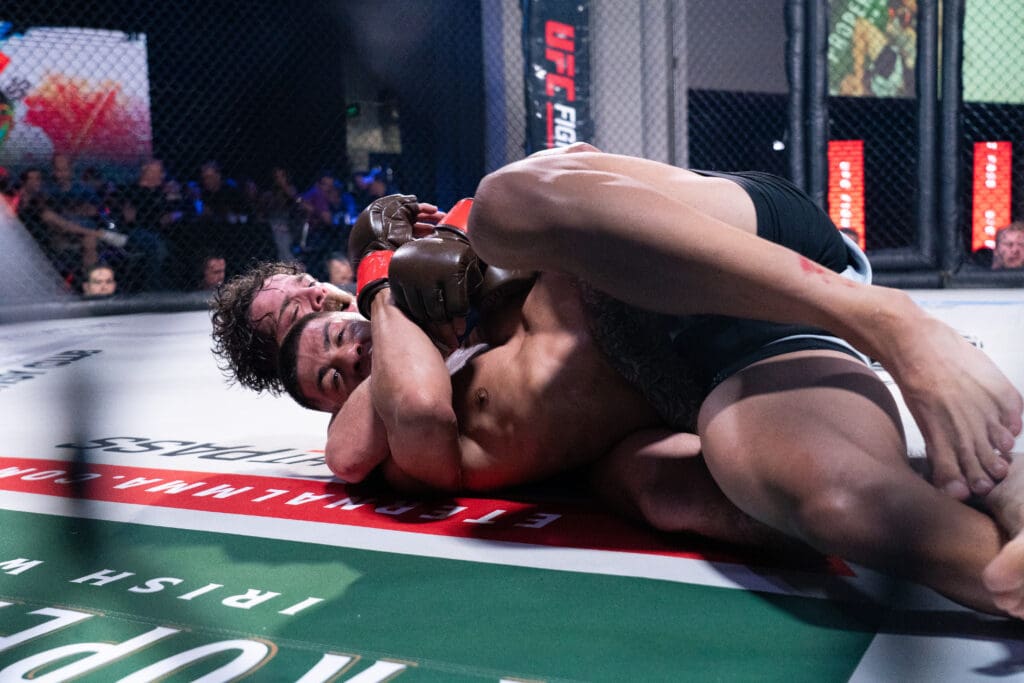
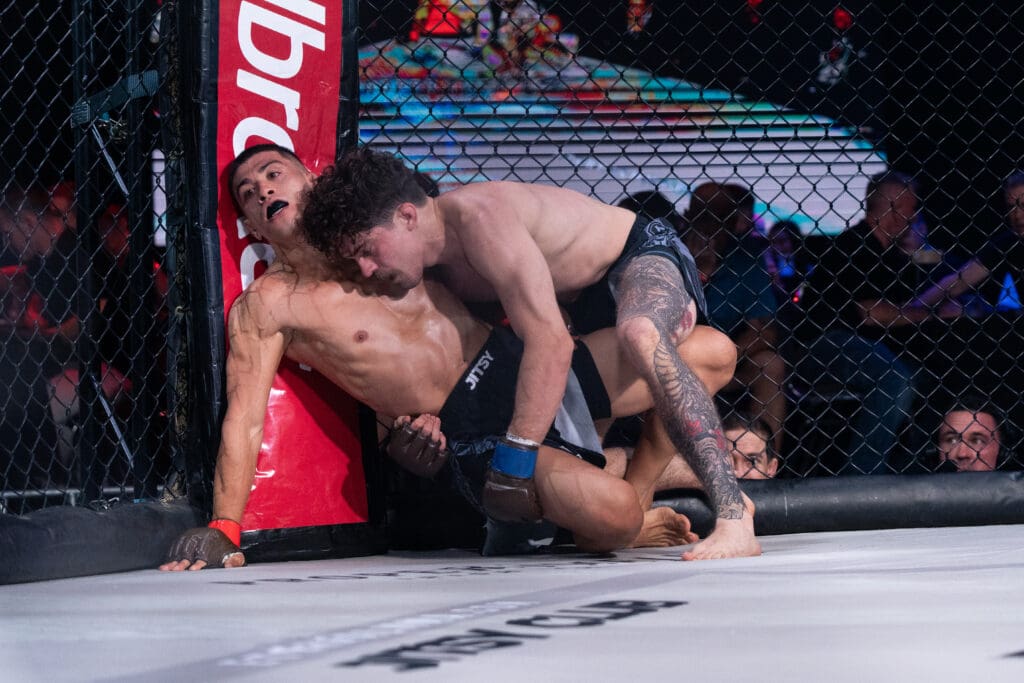
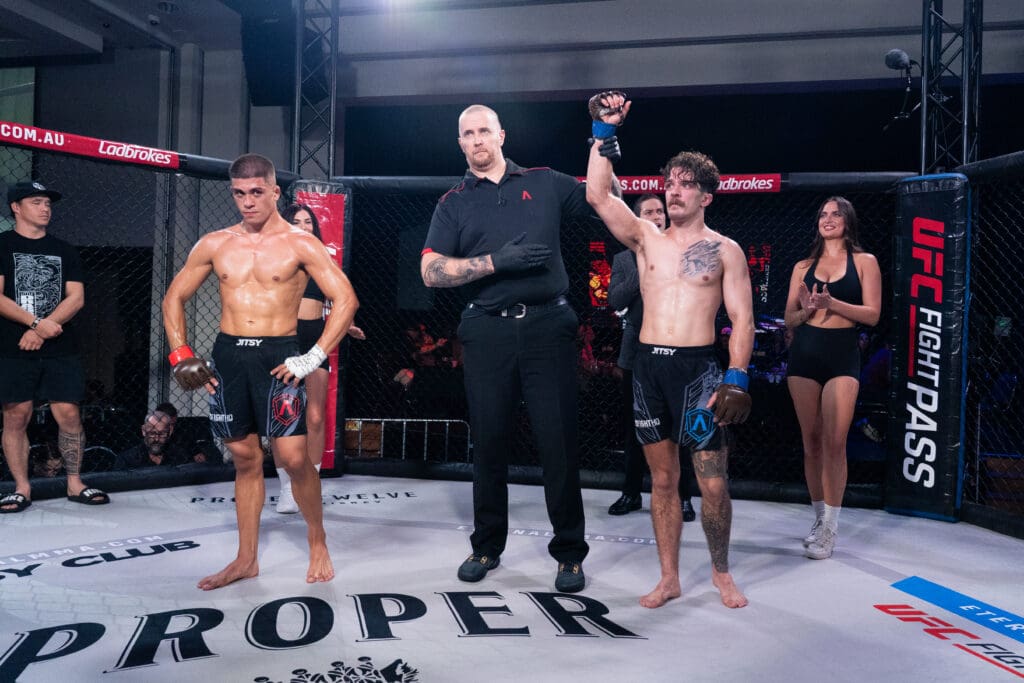
Jordan’s deeper motivation, however, lies in what the fight represents.
“Since becoming a coach for Veterans MMA, my reason for fighting has changed. I fight for something bigger than myself now. Our veterans have fought for all of us—the least I can do is return the favour.”
Coaching with Perspective: Rob Giuffrida
As Head Coach and Course Director at Veterans MMA, Rob Giuffrida has found deep purpose in working with those who’ve served. While the role comes with challenges, it’s one he describes as the most meaningful of his career—supporting a group of individuals who arrive not just with physical toughness, but with discipline, humility, and a raw honesty shaped by service.
Rob worked closely with Ash Pendergast in the lead-up to his final fight, helping him prepare both physically and mentally for what was to come. Despite Ash carrying serious injuries and heavy expectations, Rob witnessed a level of dedication that set the tone for the entire gym.
“He carried the team on his back with a smile the whole way,” Rob says. “That fight gave the boys belief—it’s still talked about in the gym.”
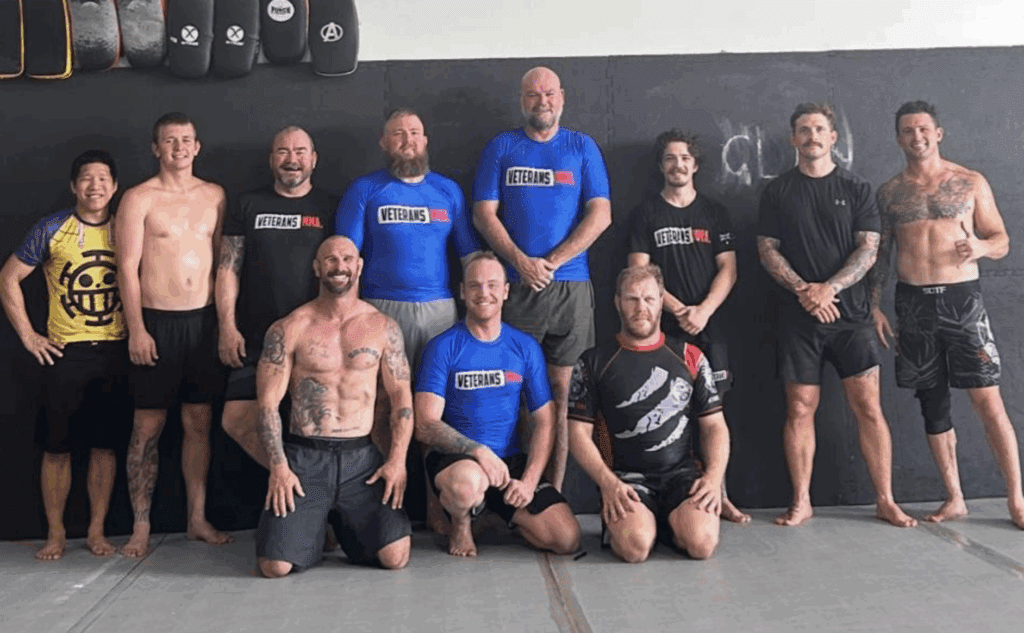
As a coach, Rob sees how the veterans look out for one another. In his words:
“When you train for yourself, one person gets better. When you train for your partner, the whole team rises.”
Building a Legacy of Support
Veterans MMA isn’t just a gym program—it’s a growing network of support, healing, and shared understanding. The long-term vision is to expand into more camps, competitions, and community-led events—all guided by the feedback of the veterans themselves.
The program is already helping reduce symptoms of isolation, depression, and PTSD—simply by giving veterans a place to belong, to be challenged, and to be seen.
“We’re not here to hand out participation certificates,” Ash says. “We’re here to build a culture of discipline, courage, and integrity—the same values we carried in uniform.”
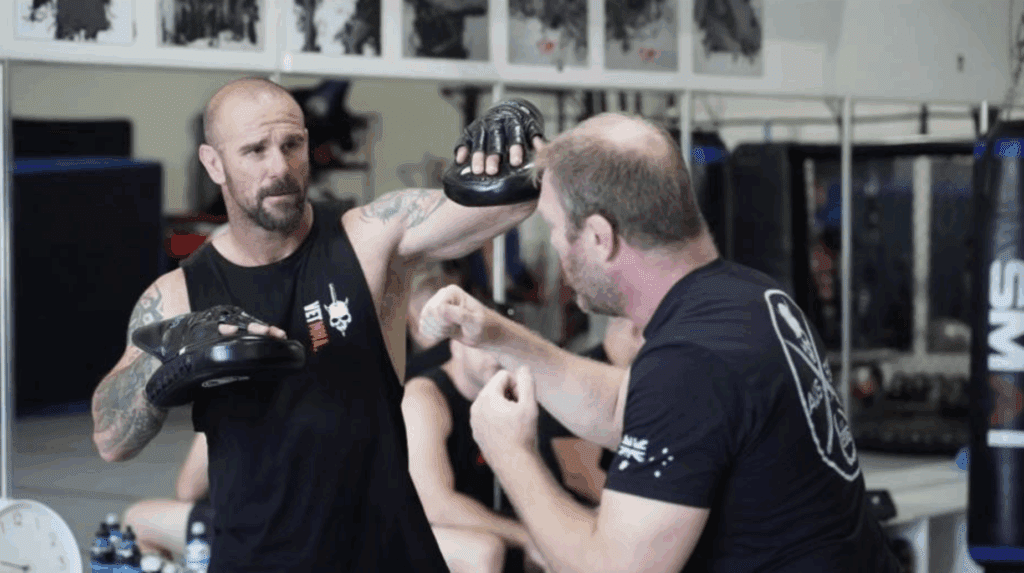

On this ANZAC Day, as we honour the service and sacrifice of Australia’s defence personnel, we also shine a light on what comes after—and those doing the work to ensure that no veteran is left to fight their battles alone.

